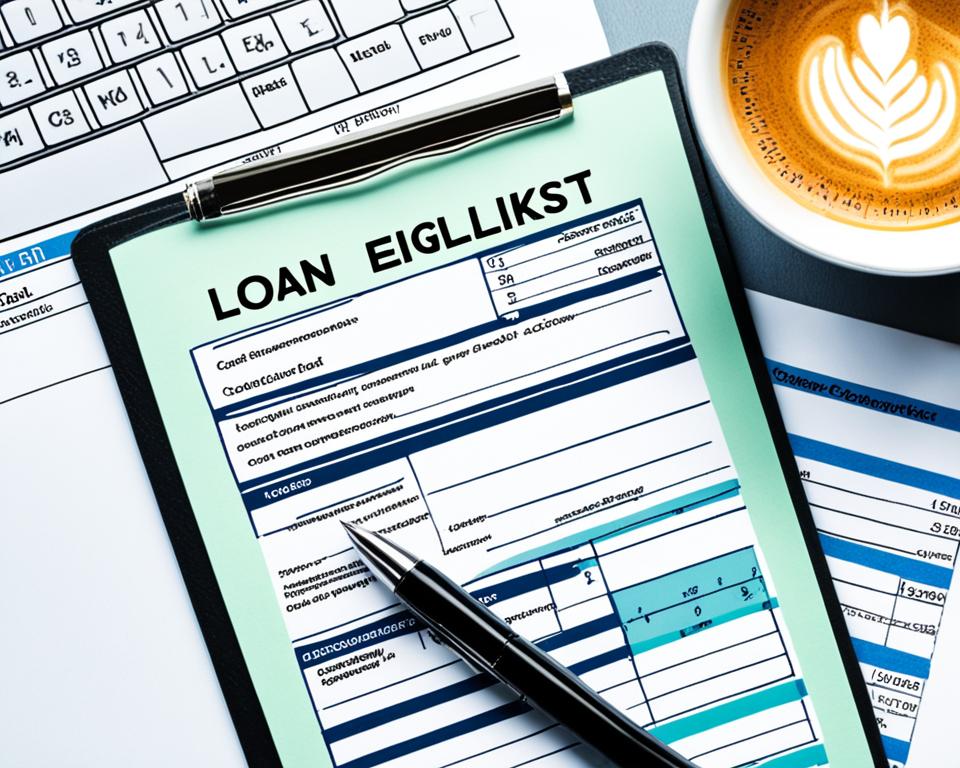Understanding the concept of investment property for first-time homebuyers
Before diving into the world of investment properties, it is essential for first-time homebuyers to understand the concept and benefits associated with this type of real estate investment. An investment property refers to a property that is purchased with the intention of generating income through rental payments or potential capital appreciation. Unlike a primary residence, which is purchased for personal use, an investment property is seen as a financial asset that can provide long-term financial stability and growth.
One of the primary benefits of investing in a property as a first-time homebuyer is the potential for passive income. By renting out the property to tenants, you can generate a steady stream of rental income that can help cover the mortgage payments and other expenses associated with the property. This can alleviate some of the financial burdens of homeownership and provide a source of additional income. Additionally, over time, the value of the investment property may appreciate, allowing you to build equity and potentially sell the property for a profit in the future. This can be particularly advantageous in areas with high demand for rental properties or strong housing markets. Ultimately, investing in an investment property can offer first-time homebuyers the opportunity to build wealth and diversify their investment portfolio.
Benefits of investing in a property as a first-time homebuyer
Investing in a property as a first-time homebuyer comes with several benefits. One of the main advantages is the potential for long-term financial growth. Real estate generally appreciates over time, so by purchasing a property, you have the opportunity to build equity and increase your net worth. Additionally, owning a property allows you to take advantage of tax deductions, such as deducting mortgage interest payments and property taxes, which can help reduce your overall tax liability.
Another benefit of investing in a property as a first-time homebuyer is the option to generate passive income. If you choose to rent out your property, you can earn a steady stream of rental income each month. This can not only help offset your mortgage and other expenses but also provide you with extra cash flow that can be saved or reinvested. Moreover, rental income can potentially increase over time, especially in areas where demand for housing is high. This additional income can be a valuable source of financial stability and freedom.
Factors to consider when choosing an investment property for first-time homebuyers
When choosing an investment property as a first-time homebuyer, there are several factors that should be carefully considered. One important factor is the location of the property. It is crucial to research and assess the neighborhood to determine its desirability and whether it fits your investment goals. Factors such as proximity to amenities, schools, transportation, and potential for growth should be taken into account. Additionally, it is important to consider the overall economic conditions of the area, as it can greatly impact the value and rental potential of the property.
Another factor to consider is the condition of the property. Evaluating the property’s age, maintenance history, and potential for renovations or repairs is essential. Older properties may require more maintenance and may have outdated features, while newer properties may have higher initial costs but lower maintenance needs. It is also important to consider the overall condition of the property’s structure, plumbing, electrical systems, and roof. A thorough inspection by a professional is recommended to identify any potential issues or hidden costs that may arise in the future.
How to identify potential investment properties for first-time homebuyers
One of the first steps in identifying potential investment properties for first-time homebuyers is to define your investment goals and criteria. This will help you narrow down your search and focus on properties that align with your objectives. Consider factors such as location, property type, expected return on investment, and your risk tolerance. By determining these criteria, you can create a clear vision of what you are looking for and make informed decisions throughout the process.
Next, it is crucial to conduct thorough research and due diligence on potential investment properties. Utilize online real estate platforms, attend open houses, and consult with local real estate agents to gather information about the property’s history, market trends, and potential for appreciation. Analyze the neighborhood’s growth and development, considering factors like job opportunities, schools, amenities, and infrastructure. Additionally, it is essential to assess the property’s condition, potential renovation or improvement costs, and any legal or zoning restrictions that may affect its value. By carefully evaluating these aspects, you can make a more informed decision when identifying potential investment properties.
Assessing the financial feasibility of an investment property for first-time homebuyers
Assessing the financial feasibility of an investment property is a crucial step for first-time homebuyers. It involves evaluating the potential return on investment and determining whether the property aligns with their financial goals. One key factor to consider is the purchase price of the property. First-time homebuyers should ensure that the price is within their budget and that they have a clear understanding of their borrowing capacity. This will help them determine if they can afford the property without putting themselves in a financially precarious position.
Another aspect to consider when assessing the financial feasibility is the cost of ongoing expenses. This includes property taxes, insurance, maintenance and repairs, as well as potential homeowner association fees. First-time homebuyers should carefully calculate these expenses and factor them into their overall budget to determine if they can comfortably afford the property over the long term. Additionally, conducting a thorough analysis of potential rental income, if considering renting out the property, can provide a clearer picture of the property’s financial viability. By considering these financial aspects, first-time homebuyers can make a well-informed decision when assessing the feasibility of an investment property.
Evaluating the location and neighborhood for an investment property as a first-time homebuyer
Location and neighborhood are crucial factors to consider when evaluating an investment property as a first-time homebuyer. The location of the property can greatly impact its potential for appreciation and rental demand. It is important to assess the proximity of the property to amenities such as schools, parks, shopping centers, and public transportation. Additionally, considering the overall safety and crime rates of the neighborhood is essential. A safe and convenient location is not only desirable for potential tenants but can also increase the property’s long-term value.
Furthermore, evaluating the neighborhood is necessary to understand the existing market trends and future growth prospects. Examining the local infrastructure development, upcoming projects, and economic stability can provide insights into the viability of the investment. Additionally, researching the demographics, such as median income levels, education levels, and job prospects, can help determine the demand for rental properties in the area. Ultimately, a well-chosen location and neighborhood can contribute significantly to the success of an investment property for first-time homebuyers.
The importance of conducting thorough research before purchasing an investment property as a first-time homebuyer
Before purchasing an investment property as a first-time homebuyer, it is crucial to conduct thorough research. This research plays a vital role in ensuring that you make an informed decision and avoid any potential pitfalls. Buying a property is a significant financial commitment, and without proper research, you may find yourself facing unexpected issues or financial setbacks.
By conducting thorough research, you can gather essential information about the property and its surrounding area. This includes understanding the local real estate market, evaluating property values, and analyzing the potential for future growth and appreciation. Additionally, research allows you to identify any potential risks or drawbacks associated with the property, such as environmental concerns or zoning regulations. Overall, investing time and effort into researching the investment property will empower you with the knowledge needed to make a wise and profitable decision.
Financing options for first-time homebuyers looking to invest in a property
When it comes to financing options for first-time homebuyers looking to invest in a property, there are several routes that can be explored. One common option is obtaining a mortgage loan, which allows individuals to borrow money from a financial institution to purchase the investment property. Mortgage loans typically require a down payment and have varying interest rates, loan terms, and repayment options. It is crucial for first-time homebuyers to carefully consider their financial situation and compare mortgage offers from different lenders to find the most favorable terms.
Another financing option for first-time homebuyers is utilizing a personal loan or line of credit. These types of loans are typically unsecured, meaning they do not require collateral such as the investment property itself. Personal loans and lines of credit can offer flexibility in terms of loan amount and repayment terms but often come with higher interest rates compared to mortgage loans. It is important for first-time homebuyers to evaluate their financial standing and consider the potential risks and benefits before opting for this type of financing option.
Ultimately, the choice of financing option for first-time homebuyers looking to invest in a property will depend on their individual circumstances, including their credit score, income, and long-term financial goals. It is advisable for individuals in this position to consult with a financial advisor or mortgage specialist to determine the most suitable financing option for their needs and ensure they are well-informed about the terms and conditions associated with each choice.
Common pitfalls to avoid when investing in a property as a first-time homebuyer
When investing in a property as a first-time homebuyer, it is important to be aware of common pitfalls that can be avoided with proper planning and research. One common pitfall is failing to set a realistic budget. It is crucial to establish a budget that takes into account not only the purchase price of the property, but also additional costs such as maintenance, repairs, and property taxes. Oftentimes, first-time homebuyers can get caught up in the excitement of purchasing a property and overestimate their financial capabilities. By setting a realistic and comprehensive budget, potential financial difficulties can be minimized.
Another common pitfall to avoid is overlooking the importance of a thorough inspection. In the excitement of finding a potential investment property, it can be easy to overlook or rush through the inspection process. However, this can be a costly mistake. A comprehensive inspection will help identify any hidden issues or potential problems with the property, such as structural damage, plumbing or electrical issues, or pest infestations. By investing in a thorough inspection, first-time homebuyers can have a better understanding of the condition of the property and avoid unexpected expenses down the line.
Tips for successfully managing an investment property as a first-time homebuyer
When it comes to successfully managing an investment property as a first-time homebuyer, there are a few key tips to keep in mind. Firstly, it is important to establish clear communication with your tenants. Regularly check in with them to ensure that any maintenance issues or concerns are promptly addressed. Maintaining a positive landlord-tenant relationship can lead to smoother operations and a better overall experience for both parties involved.
Another tip is to stay organized and keep detailed records of all financial transactions related to the property. This includes rent payments, repairs, and any other expenses incurred. Having an organized system in place will not only help you stay on top of your financials but will also come in handy during tax season. Consider using property management software or other online tools to help streamline this process. By prioritizing clear communication and staying organized, first-time homebuyers can set themselves up for success when managing an investment property.




